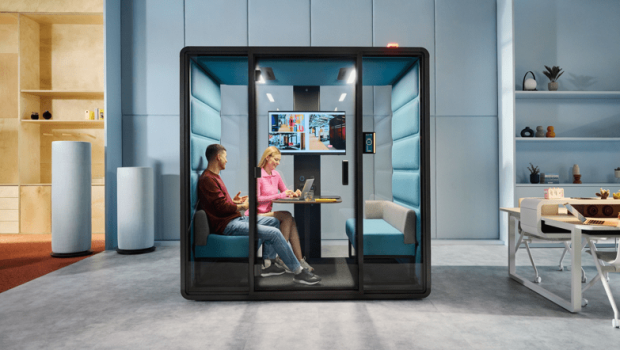Emotions at work: how offices can make life easier for highly sensitive people?

People are often classified as either introverts or extroverts, according to their personality. Highly sensitive persons, who represent 15-20% of the population, are less often noticed, however. These individuals deeply process stimuli, are very empathetic and particularly sensitive to subtle social signals, and have a tendency to quickly experience sensory overload. At the work place, these characteristics can contribute to mental discomfort and poor performance. By identifying and supporting highly sensitive workers, employers care for the wellbeing of their teams and can improve their performance. This article discusses specific strategies and solutions that can help create more inclusive work environment for highly sensitive people.
Who are highly sensitive persons?
High sensitivity is something that one cannot lose or learn, because it depends on one’s genes. It is also important to note that it is not a mental disorder or abnormality. What makes highly sensitive persons (HSPs) different from others is primarily more intense sensory processing. Their nervous system reacts to various stimuli much more strongly. HSPs absorb more information, which they ponder and process, and this makes them quite vulnerable to being overwhelmed and feeling more stressed than their coworkers. It is estimated that as much as 20% of the population are highly sensitive persons [1]. HSPs are conscientious, emphatic, creative, and dedicated, which makes them ideal workers who deserve to be taken care of by their employees.
How do highly sensitive persons work and what benefits do they bring to their companies?
Highly sensitive persons work very attentively and emphatically, which reflects their profound perception of their surroundings and others’ emotions. Their sensitivity to subtle signals such as mood or allusions allows them to see the needs of others. At the same time, they are perfectionists who seek ideal results in all they do; therefore, they need proper conditions to achieve the best work performance. Due to their sensitivity, they perform poorly under time pressure and prefer clear and direct communication. They avoid stressful allusions and unclear situations. In team work, they avoid rivalry and tend to cooperate instead. Highly sensitive persons are excellent analysts and planners due to their natural talent for analysis and prediction. Their profound reflection skills and caution makes them effective and innovative in their decision making.
How does work in open-space offices affect highly sensitive persons?
Work in an open-space office can be a challenge to highly sensitive persons. In such spaces, they are exposed to constant sensory stimuli such as noise, motion, and the absence of clear personal boundaries. As a result, highly sensitive workers feel more anxious and stressed. HSPs often need more time to process information, which is much harder in a noisy and restless environment. Consequently, despite their hard work and effort, they can be seen as less effective. An optimal solution to ensure the physical comfort and best work performance of highly sensitive persons is to provide them with a more peaceful working environment. This can be done, for example, by allowing them to do certain tasks in the Hushoffice acoustic work pods. By being insulated from noise and other environmental stimuli, highly sensitive workers can focus on their work without any pressure and the sense of being constantly watched, and without fear of receiving a bad performance review.
What do highly sensitive persons need to fully make use of their strengths?
Diversity in the workplace is more than just a response to global trends. It is also a strategic investment that supports innovation and improves a company’s performance. Inclusiveness in the workplace requires readiness to accept the unique characteristics that make every worker different. It is important to create conditions that minimise external stimuli and enable focused work without interferences. Thanks to their A rating according to ISO 23351-1:2020, single-person hushFree.S acoustic work pods play an important role in creating ‘safe havens” in the clamour of corporate spaces. They allow HSPs to isolate themselves from continuous interactions and stimuli for a moment and work in their own way. The adjustable lighting and ventilation, and the acoustic panels inside turn them into spaces that help maintain emotional equilibrium. A properly adapted office can turn the potential of HSPs into real achievements, thus making them invaluable members of the team.
[1] https://doi.org/10.1098/rstb.2017.0161